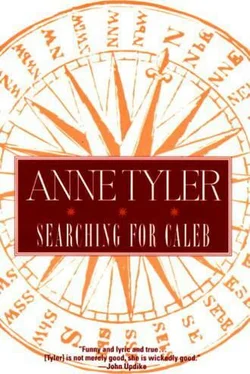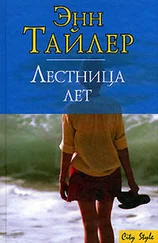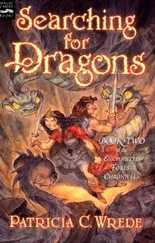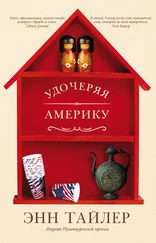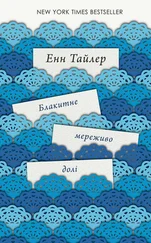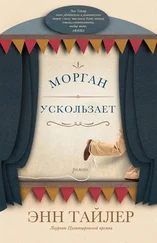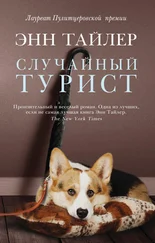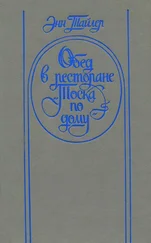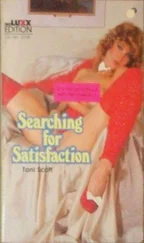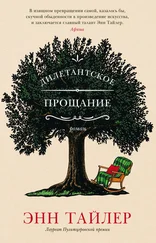“You mean— escape? ” said Caleb.
“Won’t you just come away with me?”
People had been saying that to him all his life. He had still not learned to turn them down.

19
Every now and then Justine would catch a glimpse of Caleb — as he passed a doorway, or skimmed in and out of view in front windows while walking the porch — and she would mistake him for Grandfather Peck and her heart would leap. She had never managed to believe that some people truly will not be seen again. Look, there was that jutting head, the glint of silver hair, the long nose pinched white at the tip! But then she would notice his eyes. The shock of brown eyes in her grandfather’s face. Or she would call and he would answer instantly, wincing if she spoke to him too loudly, which she was always doing, out of habit. Or his clothes gave him away — her grandfather’s, yes, but on Caleb they looked scruffy and poorly cut. She sank back, wherever she was, and Duncan looked at her curiously but said nothing.
Duncan was playing Battue now, moving yellow plastic disks among a triangle of pegs. For him it appeared to be another game of solitaire, not a puzzle; he had solved the puzzle years ago. The disks clicked steadily like the beads of an abacus or a rosary, their rhythm dictated by the churning of private thoughts. What were Duncan’s private thoughts? He wouldn’t say. He kept the bourbon bottle beside him, always nearly empty, it seemed, its cheap wavery glass perfectly clear down to the inch or so of yellow in the bottom. Occasionally he smoked a doll-sized metal pipe containing foul-smelling leaves and seeds and stems. Then he would grow dreamy and whimsical, although the leaves were so old now (having been stored nearly forever in an oregano bottle in the kitchen) that Justine suspected they had lost all their potency. He suggested unusual projects — for instance, planting the little round seeds on some village green. “Once a year we could have a new ritual, the Burning of the Green. All the villagers could sit around breathing the smoke and getting happy on a specified day.” Justine looked sideways at Caleb to see if he were shocked. He didn’t seem to be. He was not above accepting a slug or two of bourbon himself (those rigid, grandfatherly lips poised at the rim of a bottle!) and perhaps would have tried the pipe as well, if smoke did not make him cough. Nevertheless, Justine continually felt the need to tell him, “You mustn’t think Duncan’s always like this.”
“He’s not?” said Caleb.
“No, really he’s just — it will pass.”
Then she wondered why she bothered explaining, for Caleb only looked disappointed. He had some sort of expectation of them that Justine couldn’t understand. On the trip, for instance, his moods had kept shifting until she hadn’t known what to think of him. First he was elated, almost all the way to New Orleans. It was her favorite view of Caleb so far: his face alight, looking much like Duncan’s, just as she had always known it would. He was tense with excitement and his hands moved rapidly as he spoke. (Yet Justine had been taught that a Peck does not gesticulate.) He told her his whole life, everything that had happened to him since leaving Baltimore— buckets of life, torrents of names and places, snatches of song broken off and sentences left unfinished. She had the feeling that he had been saving it up for sixty years, until he could locate a family member. But then when he had finished and she questioned him on the fine points—“Whatever happened to the friend you went to New Orleans with?” “What sort of man was White-Eye Ramford?” “Did you ever think of coming home?”—he became morose and short of words. “I don’t know. I don’t know,” he muttered. Thinking to cheer him up, she said “When we get to New Orleans we’ll buy you some shoes. You can’t get on a plane in paper slippers.” But if anything, that only deepened his gloom. He looked out the window, his thumb and middle finger steadily stroking the corners of his mouth in a way that made her uncomfortable. But of course: he was mourning his brother. She should have thought. No doubt he had only been making an effort for her sake, earlier, and it had worn him out. So she let him sit in silence, and when they reached New Orleans she didn’t mention his shoes again. He did, though. He became suddenly brisk. “Say now!” he said. “Weren’t we going to change out of these paper scuffs? We can’t go back to the family looking unkempt.”
“Well, if you want to,” Justine said carefully.
“Unfortunately I am out of funds at the moment but—”
“Oh, I’ll take care of that.”
In that respect, at least, he showed his background. He did not make any sort of unseemly fuss over financial matters.
They had to stay overnight in a very poor hotel, for which Justine was apologetic, but Caleb didn’t seem to mind. He retired early after eating a large quantity of salad; fresh fruits and vegetables were some sort of obsession with him. When he waved good night in the corridor he looked just fine, but the next morning on the plane he was up and down, up and down. Talkative, then moody. Mostly moody. He asked her unlikely questions. “How many ships do you have?”
“Ships? What?”
“Do you own or lease them now?”
“ Ships! Oh,” said Justine. “We’re not importers any more.”
“You’re not?”
“The family sold it all.”
“Why! When did they do that?”
“Right after you left,” said Justine.
Then he sank into himself again, and hardly spoke until they had landed and caught the two connecting buses to Caro Mill. When she led him up Watchmaker Street she felt she was laboring with him, he looked so dismal. But at her front walk he stopped short. “Here?” he said. “Is this where you live?”
For the first time she noticed how unsteady the house appeared, how the screens bagged and the steps buckled. She wondered what that rusty motor was doing on the porch. “Yes, it is,” she said.
She felt him staring at her. She focused on the tips of her shoes.
“This is your house? ”
“Yes.”
“And what is this yellow stuff in the yard?”
“Why, cornstalks.”
“I mean— eating corn?”
“Well, Duncan wanted to grow some, you see, and he said the back didn’t get enough sun. He said we could grind up the garbage for fertilizer and spread it on the—”
She felt herself growing desperate, trying to convince him that really their life was perfectly logical. But she shouldn’t have bothered. For when finally she raised her eyes (just a glance at his face to see how she was doing) she found the corners of his mouth perked upwards like Duncan’s, his expression bright and merry again. He was back to being cheerful. And he remained cheerful ever after, growing more light-hearted day by day. He fit right in. She couldn’t understand him.
* * *
Sometimes Duncan let the Battue disks fall silent a moment while he read the newspapers. Help Wanted, of course. “Look, Justine, someone in Virginia wants a zoo keeper.”
“You’ve never been a zoo keeper, Duncan.”
“Right.”
“I mean you don’t know the first thing about it.”
“Right.”
“You have a job. Duncan, you have a job, and you should have been there three hours ago.”
Then he would rise, steady on his feet but a little slow, his face luminous and calm and angelic as only bourbon could make it, and he would very, very carefully button himself into his jacket. “If you really want to know,” he said (but speaking in Caleb’s general direction), “I don’t believe in people sacrificing themselves for the sake of other people.”
Читать дальше
